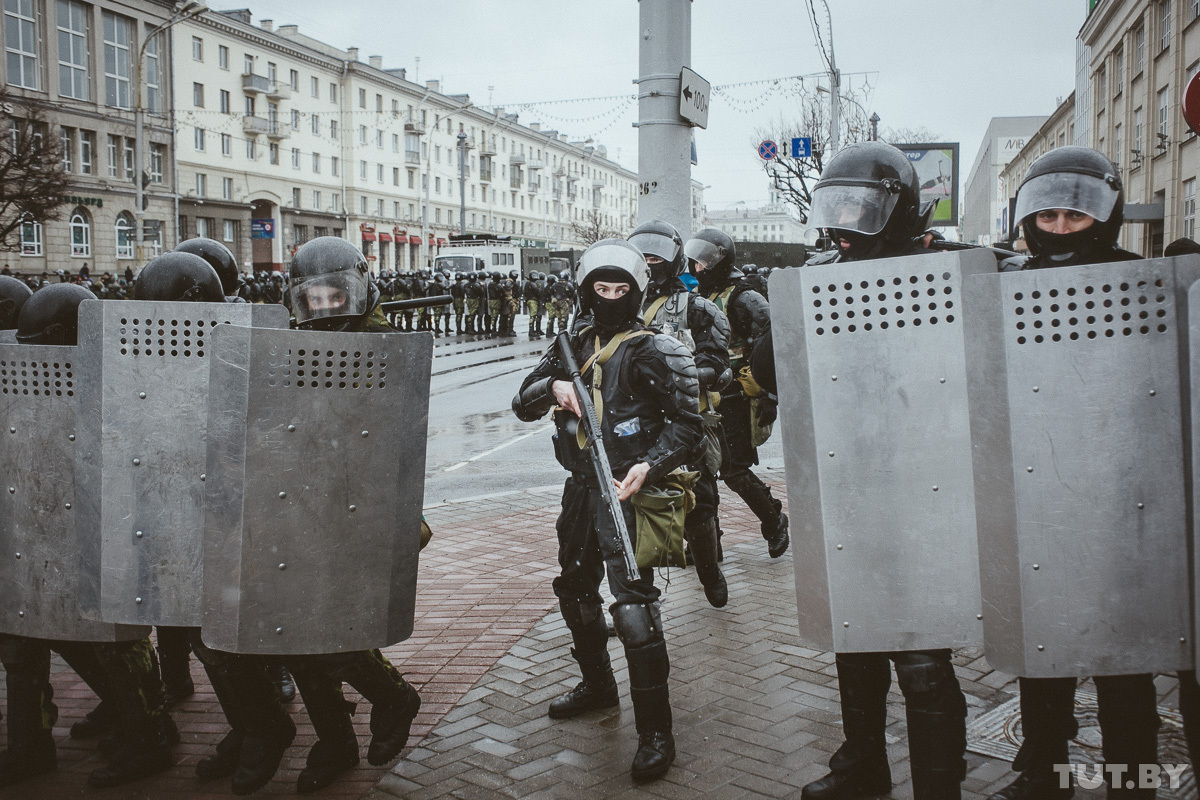
The UN Human Rights Council released a report March 15 on the situation in Belarus during and since the country’s presidential election in 2020. It concludes that the crime against humanity of “persecution” may have been committed in the country.
The advance unedited version of the report presents evidence on a wide range of issues, including arbitrary detentions, enforced disappearance, torture, and discrimination on grounds of political opinion. In particular, the report highlights the wave of arrests in the period following August 2020, when contested presidential election results sparked mass protests in the country. The report says that at least 550 civil society organizations have been forced to close for fear of persecution or violence
The report sees violations of the International Human Rights Standards on Elections, and potential crimes against humanity. It finds that the government of President Alexander Lukashenko continues to pursue “an active policy to shield perpetrators and prevent accountability.”
The investigation commenced after the Human Rights Council passed Resolution 52/29 in April 2023, and expressed “deep concerns at the further deterioration in the situation of human rights in Belarus.”
From Jurist, March 17. Used with permission.
Photo Libcom.org





Belarus releases several political prisoners under ‘amnesty law’
A total of 17 political prisoners have been amnestied and pardoned in Belarus, following the signing of a new Law on Amnesty, commemorating “the 80th Anniversary of the Liberation of Belarus from Nazi Invaders.” At the moment 1,423 persons are considered political prisoners in Belarus. (Jurist)
Belarus releases banned opposition party leader after 30 months
Mikalai Kazlou, former head of the banned Belarusian opposition United Civic Party, was released from prison on July 22, according to human rights group Viasna. Kazlou had served 30 months before his release. Kazlou was sentenced to two and a half years over organizing protests in July 2022. (Jurist)
Belarus president pardons 30 political prisoners
Belarusian President Alexander Lukashenko pardoned 30 people convicted of crimes related to protests Aug. 16. Of those released, 14 were women and 16 were men, all retirement-aged or people who suffer from serious illnesses.
Opposition leader Sviatlana Tsikhanouskaya welcomed the move, considering it a “small but important step forward.” Nevertheless, Tsikhanouskaya commented on the importance that every political prisoner be freed. The opposition leader further commented that the Lukashenko government turned the country into a “gulag” and that “no one there will have true freedom until our country is free.” (Jurist)
Belarus election called a ‘sham’
Belarus’ election commission says authoritarian President Alexander Lukashenko won re-election with 87% of the vote Jan. 26. The country’s political opposition, mostly in jail or exiled abroad, joined European leaders in calling the election a sham. (PRI)